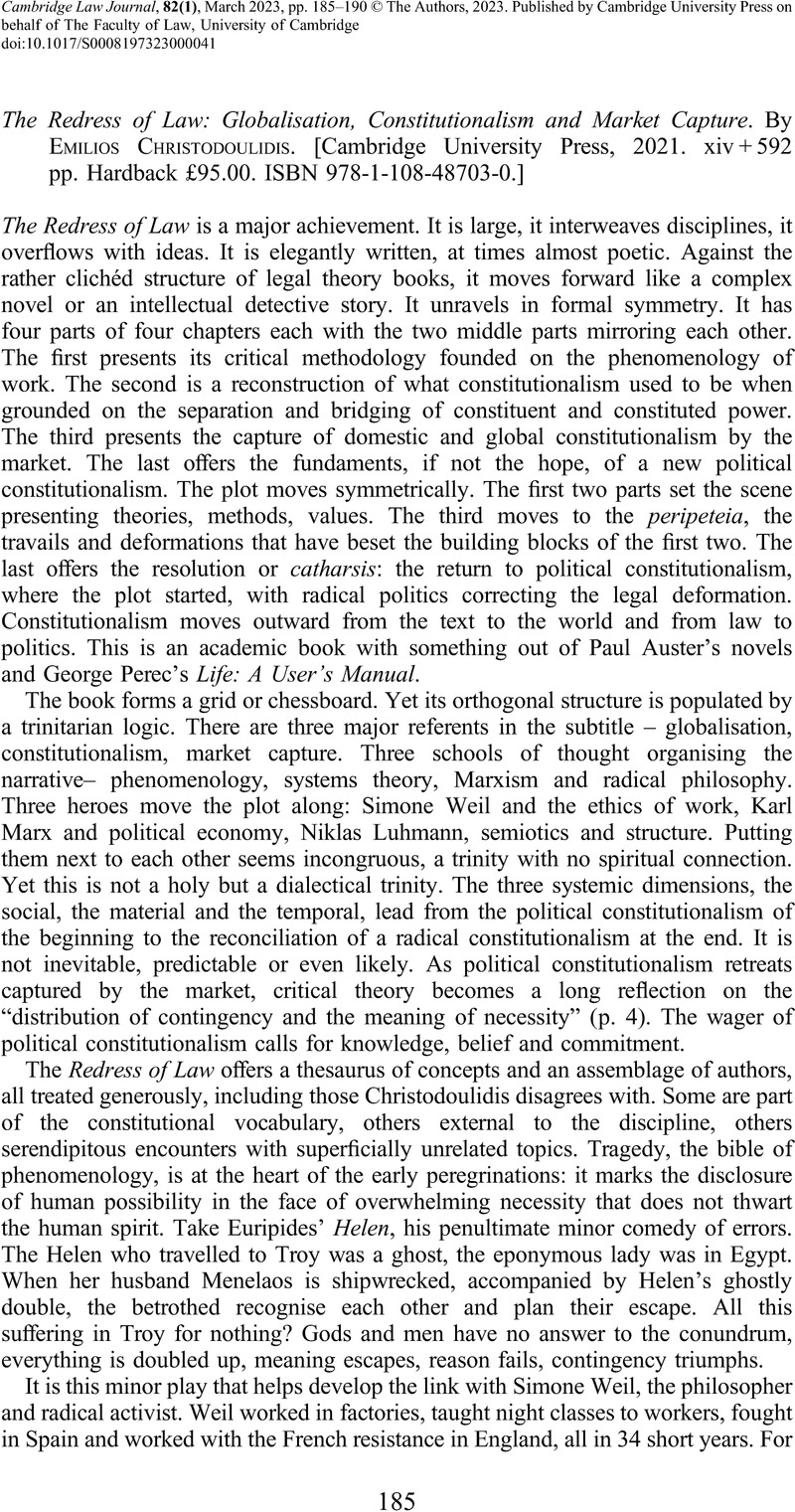No CrossRef data available.
Article contents
The Redress of Law: Globalisation, Constitutionalism and Market Capture. By Emilios Christodoulidis. [Cambridge University Press, 2021. xiv + 592 pp. Hardback £95.00. ISBN 978-1-108-48703-0.]
Review products
The Redress of Law: Globalisation, Constitutionalism and Market Capture. By Emilios Christodoulidis. [Cambridge University Press, 2021. xiv + 592 pp. Hardback £95.00. ISBN 978-1-108-48703-0.]
Published online by Cambridge University Press: 26 April 2023
Abstract
An abstract is not available for this content so a preview has been provided. Please use the Get access link above for information on how to access this content.

- Type
- Book Review
- Information
- Copyright
- Copyright © The Authors, 2023. Published by Cambridge University Press on behalf of The Faculty of Law, University of Cambridge


